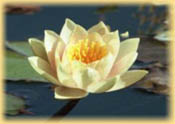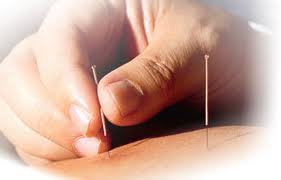
 |
|||||
|
|
![]()
Acupuncture
Does acupuncture really work ?
Yes. Increasing patient numbers and wider acceptance of Acupuncture as an effective modality for a variety of conditions reflects the effectiveness of this traditional Chinese medicine.
Acupuncture is recognised as an effective form of preventative medicine because of its ability to detect and treat energy imbalances before they lead to disease.
You may notice benefits to your health generally – sleep, energy levels, digestion etc. before the presenting symptoms improve.
Do I have to believe in acupuncture for it
to really work ?
No. Acupuncture is used successfully on cats,
dogs, horses and other animals. These animal patients do not understand
or believe in the process that helps them get better. A positive attitude
toward wellness may reinforce the effects of the treatment received.
Acupuncture works irrespective of the patient’s attitude towards the therapy – although a positive attitude
towards Acupuncture and life in general benefits the patient. ,
What happens during an acupuncture session?
The initial session may be up to 1½ hours long, as a full medical history is taken, prior to the treatment. Subsequent
sessions are usually 1 hour long.
 The patient generally lies on their back on the treatment table.
The patient generally lies on their back on the treatment table.
The pulses are felt on each of the patient's wrists & tongue diagnosis
is made by the practitioner observing the colour and shape of the clients
tongue. With these observations and the medical history the acupuncture
practitioner can now make a diagnosis and decide which acupuncture points to needle.
The areas to be needled are uncovered and first swabbed with sterilised
alcohol swabs. Thin, single-use disposable needles are inserted to a
depth of approximately 3-5 mm, the patient usually feeling a mild dull
sensation when the needle touches the energy of the point.
Most patients report a pleasurable "tingling" sensation and
feeling of relaxation while the needles are in place. The needles are
as fine as a hair, and do not resemble a doctor's hypodermic
needle.
The needles are generally kept for approx. 45 minutes to 1 hour
while the patient rests, and then are removed, however on occasion the
needles are inserted and then removed immediately. Wrist pulses are
felt again to confirm the effectiveness of the treatment session.
How many treatments will
I need ?
The number of treatments needed differs from person to person. For complex
or long-standing conditions, one or two treatments a week for several
months may be recommended. For acute problems, usually fewer visits
are required.
What can I do to maximise the benefits of my Acupuncture sessions?
- Do not eat a very large meal just before or after your treatment.
- Do not over-exercise, or consume alcohol 6 hours before or after the treatment.
- Try to rest or have a slower pace after treatments.
- Continue to take any prescription medicines as directed by your
medical doctor. Substance abuse (drugs and alcohol) especially in the week
prior to treatment, will interfere with the effectiveness of
acupuncture treatments.
- Keep notes of your response to treatments – especially the initial ones, if you are receiving concurrent treatment from your medical doctor.
Are there any side effects to the treatment
?
Usually not. As energy is redirected in the body,
internal chemicals and hormones are stimulated and healing begins to
take place. Occasionally the original symptoms worsen for a few days,
or other general changes in appetite, sleep, bowel or urination patterns,
or emotional state may be triggered. These should not cause concern,
as they are simply indications that the acupuncture is starting to work.
It is quite common with the first one or two treatments to have a sensation
of deep relaxation or even mild disorientation immediately following
the treatment. These pass within a short time, and never require anything
more than a bit of rest to overcome.
People experience acupuncture needling differently. Most patients feel only minimal pain as the needles are inserted; some feel no pain at all. Once the needles are in place, there is no pain felt. Acupuncture needles are very thin and solid and are made from stainless steel.
How much does an Acupuncture session cost?
| Initial visit | $65 (1-1.5 hrs long) | |
| Follow up | $55 | |
| Children | $50 |
Full cancellation fees are requested for appointments cancelled with less than 24 hours notice.